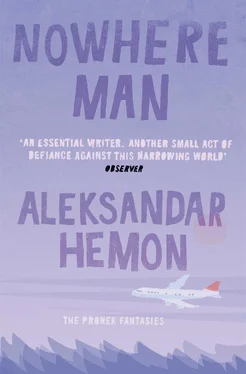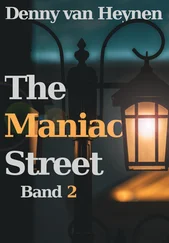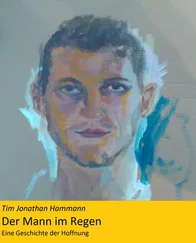Thus they broke up: tears; meaningless late night phone calls; a few letters in the handwriting of love and helplessness; a series of Pronek’s late night guitar-playing sessions, interrupted by his sleepy parents, demanding the cessation of the wailing. Mirza told him that whatever didn’t kill him made him stronger, and gave him a 45 with the song entitled “I’d Rather Go Blind Than See You Walk Away from Me.” It was mortifyingly sad, and Pronek played it over and over again, sinking into the blue depths of pain. Somewhere along the way, he finished high school, and went to the prom night, where the carousing drunken teenagers squealing with joy irked him terribly. He left early, and wandered the streets, ending up on a bench by the Miljacka, watching the same soccer balls still revolving, like planets in turmoil.
The following summer was long and torturous: he spent a few weeks in Makarska with his parents, whose idea of vacation was lounging on a pebbly beach (many a pebble tar-coated) and then playing Ping-Pong, his father winning every single game hands down. They went for family walks in the evenings, Pronek walking a few paces behind them, so as to appear sovereign, licking ice cream, which always had the same taste regardless of the alleged flavor. Worst of all were the bonding attempts on the part of his father, who would take him out for a beer. “The men will have beer tonight!” he would announce to Mother, and then made him drink raspberry juice. Father Pronek would tell his son endless, pointless stories about their Ukrainian ancestors, about his childhood growing up barefoot and poor. It was important that he understood, Father said, that this family rose from poverty and now can drink beer and raspberry juice just because they felt like it and not because they were thirsty. Now they could have vacations in Makarska—“Look around you!” Father demanded. Pronek did and saw a cheap touristy town, with armies of lobster-red bodies marching, hauling the bodies of screaming children; and here and there an attractive body clinging to a hairy forearm, well beyond his reach, painfully implying Sabina’s absence. Sometimes, Father would tell him his police stories, a story about the prison guard who killed nine people because he saw them covered with gnats; about the mother who killed her son with a knife in the back because he came back late that night; about a mailman who attacked his neighbor with a chainsaw, but stumbled and sliced off his own foot.
Pronek spent sleepless nights sharing the room with his parents, listening to the tussling under the sheets. Without his guitar, stuck in the room at the age of eighteen with his own horny parents, Pronek reached the edge of tears, and then stopped there, forcing himself to think about a year in the army, only a couple of months away.
He fantasized about the tough army life, about doing thousands of pushups, crawling under barbed wire, astonishing his commanding officer at the shooting range with his precise eye. He imagined coming back from the army strong — his shoulders wide, his face hardened and hairy, with a scar across his cheek (barbed wire). Having entered the pleasant space between fantasy and dream, Pronek went on reconnaissance missions, sneaking up on an unsuspecting enemy guard, ready to break his neck or cram a blade into his kidney. He put out an enemy sniper on top of a tall building, Pronek’s bullet hitting him between the eyes. Pronek spent months in the trenches with Mirza, sharing the food, waiting for the enemy to attack, and once the enemy poured into the trenches and overcame them, he detonated a hand grenade and died for freedom. When he slipped into the realm of pure dream, there were mushrooms on the horizon and enemy soldiers naked and aroused, and he would be stuck in a cave full of mice and frogs. Once his father put his gun to his temple and said: “Should I kill you now or after the cartoons?” Pronek sprang back into the reality of a hot Adriatic night, cicadas producing a steely, twangy sound, as if sawing the trees outside. His father peacefully snored, and Pronek could see his mother’s feet peeking from under the cover, her corns moonlit.
Pronek’s father had some army connections and he wanted to use them to arrange for Pronek to serve in the military police. Pronek, however, hoped to serve his country in an army orchestra, somewhere close to Sarajevo, but was too attached to his fantasies to say no to the masculinity a military-police boot camp would provide. Strange are the ways of the military, however: Pronek ended up in an infantry unit, in a Macedonian town called Stip, which reeked of coconut-flavored chewing gum, as a candy factory was the only thing beside the army garrison.
As if bent on punishing Pronek for his fantasies, the army’s idea of what becoming a man meant was the exact opposite of Pronek’s: perpetual humiliation was its main tool. First the conscripts went through a warehouse, where the soldiers distributing clothes threw pieces of uniform at them, guessing the size or simply indulging their whims. Pronek received a shirt too small, a cap too big, pants that could accommodate a small man beside him, and underwear that had no rubber band. Then his head was shaved and he was sent into the showers with two hundred other soldiers, one of whom decided to urinate on Pronek’s thigh, thereby baptizing him. The water coming from the showers was cold, and Pronek spent too much time soaping himself. The water was discontinued before he could rinse.
Let us look at Pronek now, coming out of the latrines, a brand-new soldier of the Yugoslav People’s Army: the cap pressing down his ears, making him look jug-eared; his pants ballooning around his thighs; his underwear sliding down to his knees, impeding his step. Carrying his civilian clothes in a stinky white bag, he totters toward the promised land of manhood with his eyes teary from the soap dripping off his forehead.
Pronek rolled in mud, ran up hills, ran down hills, ran through a forest with a gas mask, slamming into trees, marched across Macedonian plains, and guarded ominous magazines, learning to sleep on his feet. He was less than mediocre at the shooting range, because he closed his eyes when pressing the trigger. He stole his comrades’ clean socks and looked at pictures of their girlfriends, all presumably fucking someone else now. Pronek showed them Sabina’s picture — beautiful, on a sailboat, in a swimsuit — which he regretted when they started making lewd jokes.
He silently endured shrieking corporals and the howling platoon commander, Captain Milosevic, who liked to alarm them in the middle of the night and have them stand at attention for hours. He tried to stay awake through the political-education classes as Captain Milosevic explained why socialism was the fate of America. You could never be alone: in the bathroom, in the dorms, in the canteen, at night, in the morning, in your dreams, there were young men — skinny, stinky, ever eager to talk about women and fear furtive homosexuals, ever hungry and ready to get drunk, ever sharing the same repertoire of jokes, uniformly revolving around farting. Sometimes, at the swearing-in of new soldiers, or at a celebration of a Party-congress anniversary, there would be an orchestra and Pronek would wistfully watch the guitar player absentmindedly strumming his strings, performing a song about the people’s joyful spirit.
Pronek lied to his parents, presenting his army experience as one of bonding with other young men from all across Yugoslavia, strengthening the brotherhood and unity that kept the country strong and united. Sometimes he embellished his letters with appreciation of the simple soldierly life, or expressed pride that the good people of Yugoslavia, his parents included, were peacefully sleeping because Pronek himself was dwelling over their freedom. His dwelling was more due to the frantic nocturnal masturbation of Spasoje, a shepherd who had spent the past ten years alone with sheep in the mountains of southern Serbia and liked to bang his feet against the bunk-bed bars in the throes of self-passion.
Читать дальше












